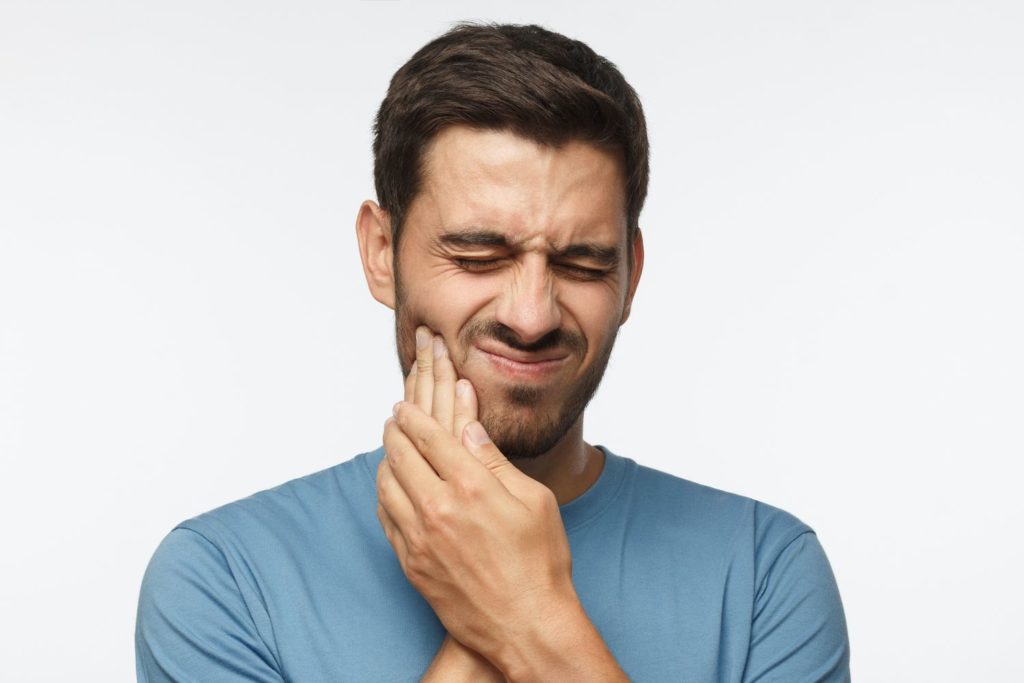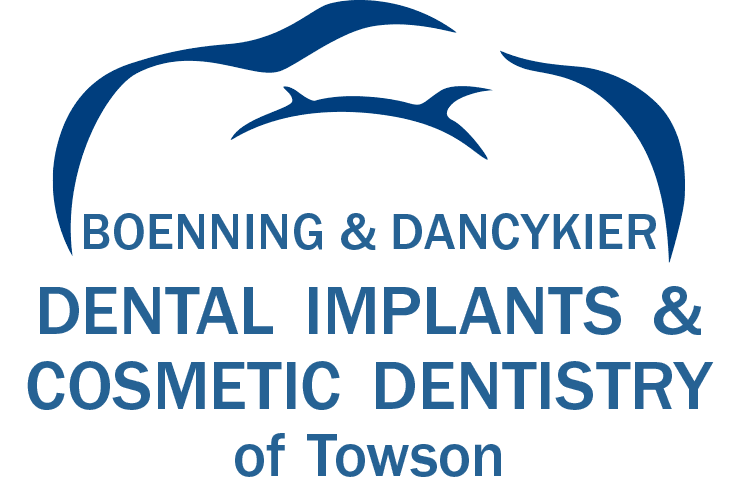Teeth grinding, or bruxism, is a condition that ruins teeth and causes great pain in your jaw. It typically occurs while the patient is sleeping. They may not even know they are doing it until they read into the symptoms they are experiencing. Patients who grind their teeth should take the condition seriously because of the many problems it can lead to.
Dr. Keith Boenning and Dr. Nate Dancykier are dentists that offer night guards for patients that suffer from teeth grinding in Towson, MD. We can diagnose your condition during a routine dental exam and recommend the most relevant solutions.

What Are The Causes Of Teeth Grinding?
The cause of bruxism is different for everyone. Our dentist will ask you many questions to help you pinpoint it. It could be something simple like too much caffeine, alcohol, or tobacco.
However, other medical conditions, such as sleep apnea and acid reflux, can cause people to grind their teeth. Also, there is a strong correlation between teeth grinding and TMJ disorders.
Symptoms of Teeth Grinding
- Grinding Sounds: If you are around anyone that grinds their teeth, you will notice the distinct sound it makes. Especially at night, the sound of grinding teeth is probably loud enough to wake up a sleeping partner.
- Worn Down Teeth: Over a span of time, constant teeth grinding can cause your teeth to wear down. This will lead to tooth sensitivity, and flattened, chipped, or fractured teeth.
- Jaw Pain: Constant pain in the jaw joint (temporomandibular joint or TMJ) is a common symptom. This pain might radiate to the ear, down the neck, and into the shoulders. It can also cause frequent headaches.
- Facial Pain: Bruxism can cause pain in the face, especially around the temples, and can cause earaches.
- Morning Headaches: Waking up with a dull headache, especially around the temples, is a common sign of teeth grinding during sleep.
- Jaw Muscle Discomfort: The muscles used for chewing may feel sore or tight, especially in the morning.
- Locked Jaw: In severe cases, bruxism can lead to a locked jaw, making it difficult to open or close the mouth fully.
- Daytime Fatigue: Bruxism can lead to sleep disruptions which will cause fatigue and drowsiness during the day.
- Cheek Tissue Damage: Chronic grinding can cause damage to the inside of the cheeks, including indentations and sores.
Treating your Teething Grinding in Towson, MD
Without proper treatment, you will cause serious damage to your teeth and gums eventually. On the most extreme end, this damage can extend to the underlying bone structure. Seeking treatment as soon as possible is important. Our dentist’s goal is to prevent the grinding from damaging your teeth and to fix any damage that has occurred.
If your teeth grinding is from too much stress or caffeine, make necessary changes in your lifestyle to prevent it. Finding ways to relax, such as doing yoga, might be the key to helping you find relief.
Oral Appliance Therapy
Our dentists use oral appliance therapy to protect teeth from constant grinding. Known as a dental night guard, an oral appliance for teeth grinding is a custom mouthpiece that you will wear at night. Protect your teeth at night with an effective, non-invasive treatment for bruxism.
We make them from digital impressions of your teeth so they will fit perfectly in your mouth while you sleep. A night guard will protect your teeth from damage and reduce face and jaw pain.
An oral appliance works by providing a cushioning effect when the upper and lower teeth make contact. The device absorbs all the force generated when you grind your teeth to prevent damage to your teeth. The jaw muscles will relax because the device minimizes the clenching and grinding tendencies.
Additionally, by holding the jaw in the proper position, it prevents strain and any associated pain and discomfort. To learn more about how oral appliance therapy can treat your teeth grinding, visit Night Guard.
Repair the Damage
Restorative dentistry plays an important role in treating teeth grinding. This condition can lead to major dental problems such as worn down tooth enamel, cracked teeth, chipped teeth, and worn down teeth.
A common side effect of damaged teeth is tooth sensitivity. Also, it may allow bacteria to enter the tooth and cause a serious infection. Repairing damage from constant teeth grinding and restoring those teeth is important for your oral health.
Our dental office offers many restorative dental treatments to return form and function to your smile. Dental bonding is a great treatment that can address minor damage caused by teeth grinding. It involves using a tooth-colored resin material and applying it directly to the damaged tooth. Then our dentists will shape it by hand.
Dental crowns can also cover and restore extensively damaged or weakened teeth. This restorative treatment will provide protection and support for the tooth preventing further damage. Severe cases of damage may require extracting the tooth.
Replacing the tooth with dental implants, dentures, or a dental bridge will keep your mouth healthy and functional. To learn more about our restorative dentistry treatments, visit Restorative Dentistry.
Jaw Stretches and Exercises
Our dentists may also suggest doing various jaw stretches and exercises. Constant teeth grinding may lead to pain in the jaw joints. This pain can be severe and may create tension in your head. Some patients may even experience chronic headaches.
Doing stretches and exercises will normalize the muscles and joints on the sides of your face. Some patients even find the activities relaxing, which helps them relax and prevents them from grinding their teeth.
Teeth grinding can be a serious problem. Stop suffering from the effects of grinding your teeth today. Request an appointment with Dr. Keith Boenning and Dr. Nate Dancykier. We can provide you with various treatment options for teeth grinding in Towson, MD.
